VE Day Celebration
Victory in Europe Day: A Time of Celebration and Reflection
Victory in Europe Day, commonly known as VE Day, marks the formal acceptance by the Allied forces of World War II of Nazi Germany’s unconditional surrender of its armed forces, effectively ending the war in Europe. This pivotal moment in history occurred on Tuesday, May 8, 1945, and was met with widespread jubilation across the globe. While the cessation of hostilities in Europe brought immense relief, it is important to remember that the Second World War was not yet entirely over, as fierce fighting continued in the Pacific theater.
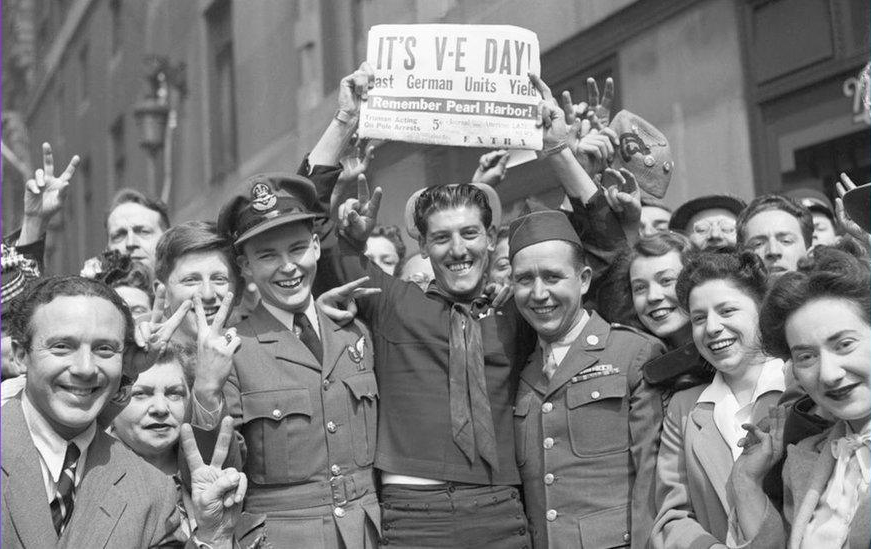
The very term "VE Day" had already entered popular parlance as early as September 1944, indicating a growing anticipation of the Allied triumph as the war progressed. Interestingly, while May 8th is the widely recognized date for VE Day in much of the Western world, Russia and several former Soviet nations commemorate Victory Day on May 9th. This difference arose from the timing of the final surrender document's signing in Berlin, which took place late on May 8th in Central European Summer Time, translating to the early hours of May 9th in Moscow Time. This discrepancy underscores the complexities of coordinating international events and the distinct historical narratives that developed in the aftermath of the war.
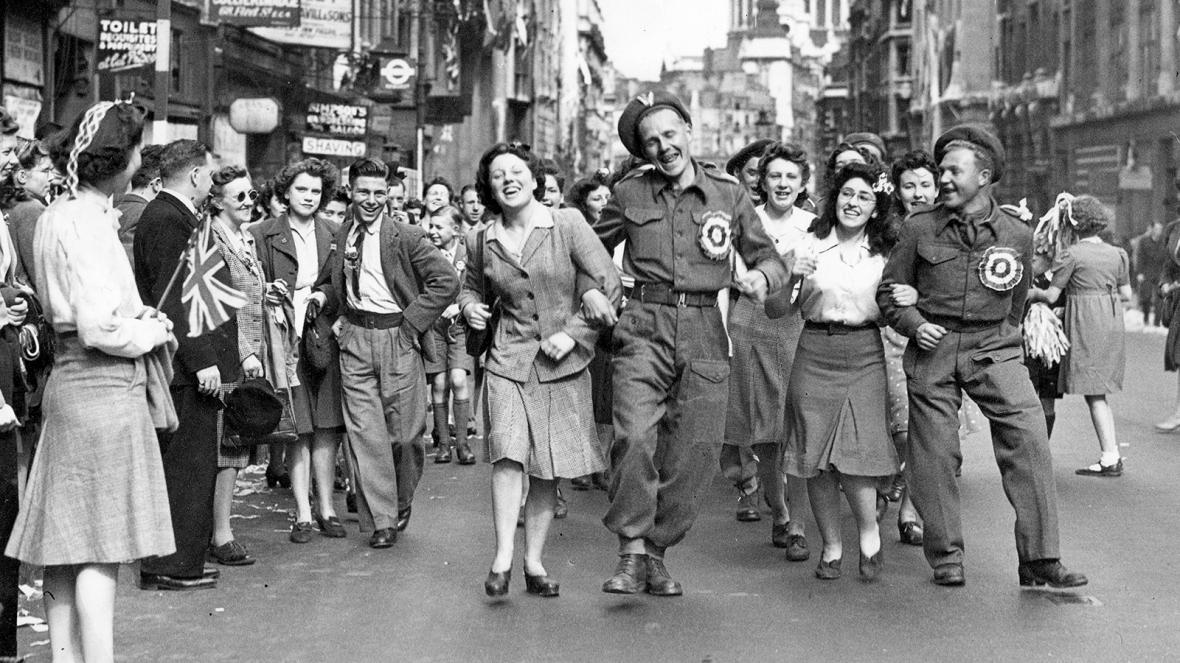
The final months leading up to Victory in Europe witnessed the dramatic collapse of the German war machine. By early 1945, the Allied forces were relentlessly advancing from the west, while the Soviet Red Army pushed inexorably from the east. This pincer movement culminated in the encirclement of Berlin, the heart of Hitler's Third Reich. April 1945 proved to be a decisive month. On April 25th, American and Soviet forces made contact at the Elbe River, a symbolic meeting that signified the near-complete destruction of the once-formidable German Army. Five days later, on April 30th, Adolf Hitler took his own life in his underground bunker in Berlin as Soviet troops closed in. In the wake of Hitler’s suicide, Grand Admiral Karl Dönitz was appointed as his successor and authorized the unconditional surrender of Germany’s armed forces.
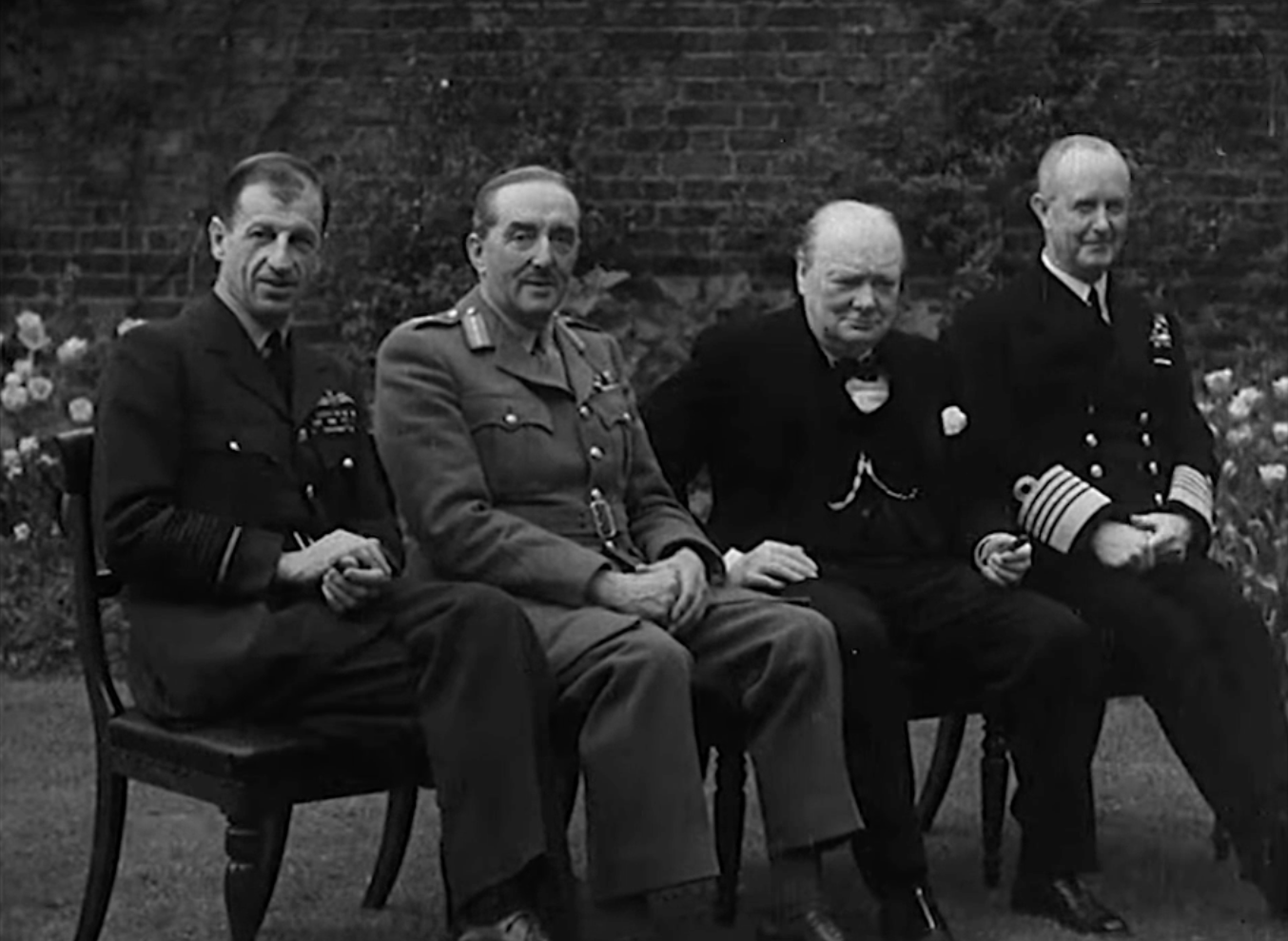
The war in Europe had exacted a horrific toll, leaving millions dead, cities in ruins, and countless communities displaced. Dönitz, in his brief tenure, strategically aimed to negotiate the surrender in a manner that would allow as many German soldiers as possible to surrender to the Western Allies, thereby avoiding capture by the Soviet forces. This decision reflected the growing apprehension within German leadership regarding the anticipated post-war occupation zones and the differing treatment under Western and Soviet control. By May 7th, anticipation for the official end of the war in Europe was palpable, particularly in Britain, where the British Broadcasting Corporation (BBC) was already poised to announce VE Day as an imminent national holiday.6 This eagerness highlights the profound desire for peace after years of devastating conflict.
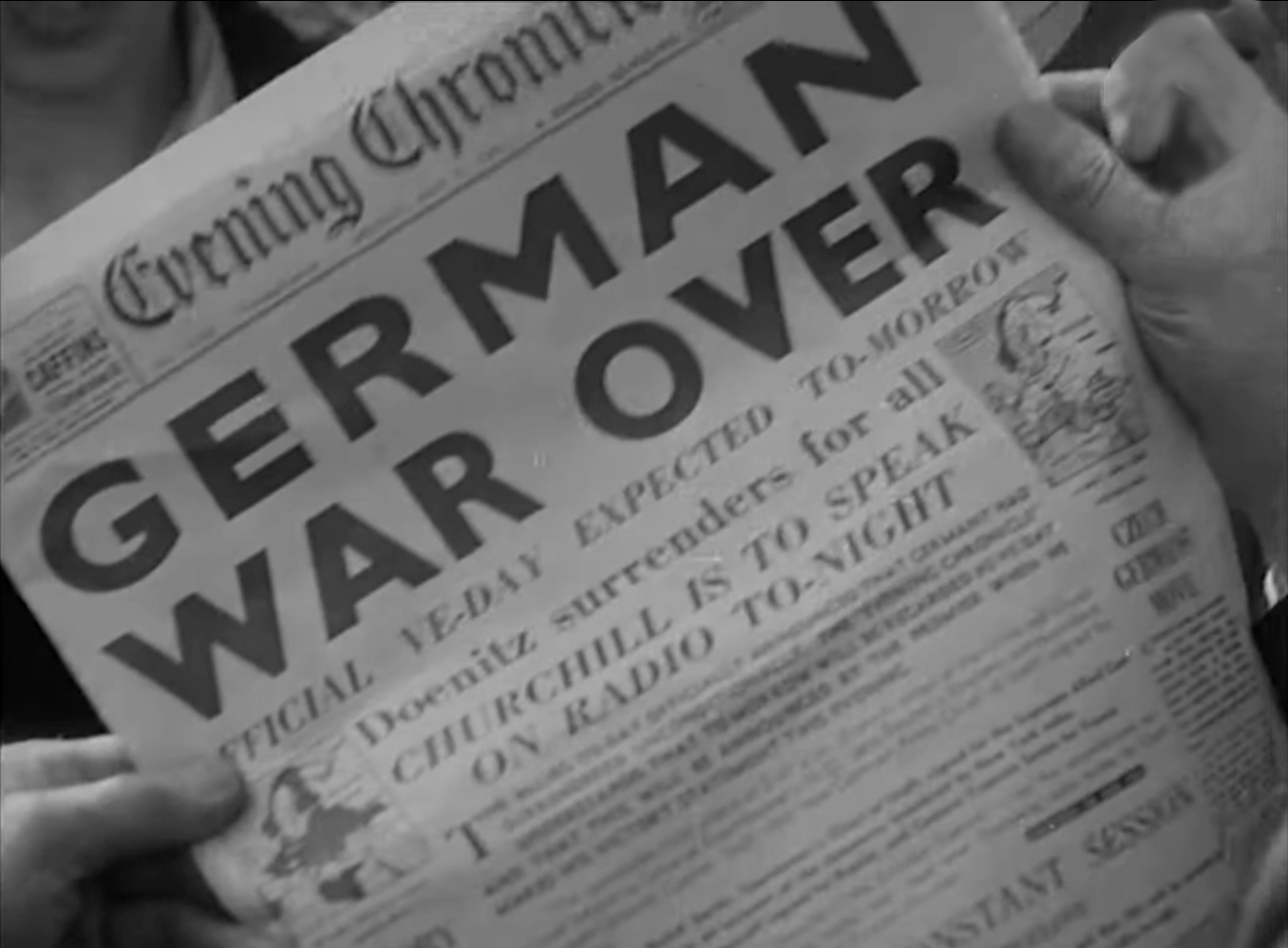
The formal end to the war in Europe came through two significant surrender signings. The first occurred on May 7, 1945, at 02:41 Central European Time, at the Supreme Allied Headquarters in Reims, France. General Alfred Jodl, the Chief of Staff of the German Armed Forces High Command, signed the instrument of unconditional surrender for all German forces to the Allied Expeditionary Force and simultaneously to the Soviet High Command. The terms of this surrender stipulated that all active operations by German military, naval, and air forces were to cease at 23:01 Central European Time on May 8, 1945. However, Soviet leader Joseph Stalin insisted on a second, more formal ceremony to be held in Berlin, emphasizing the Soviet Union's crucial role in the defeat of Nazi Germany. Consequently, a slightly modified document, considered the definitive German Instrument of Surrender, was signed on May 8, 1945, in Karlshorst, Berlin, at 22:43 local time.
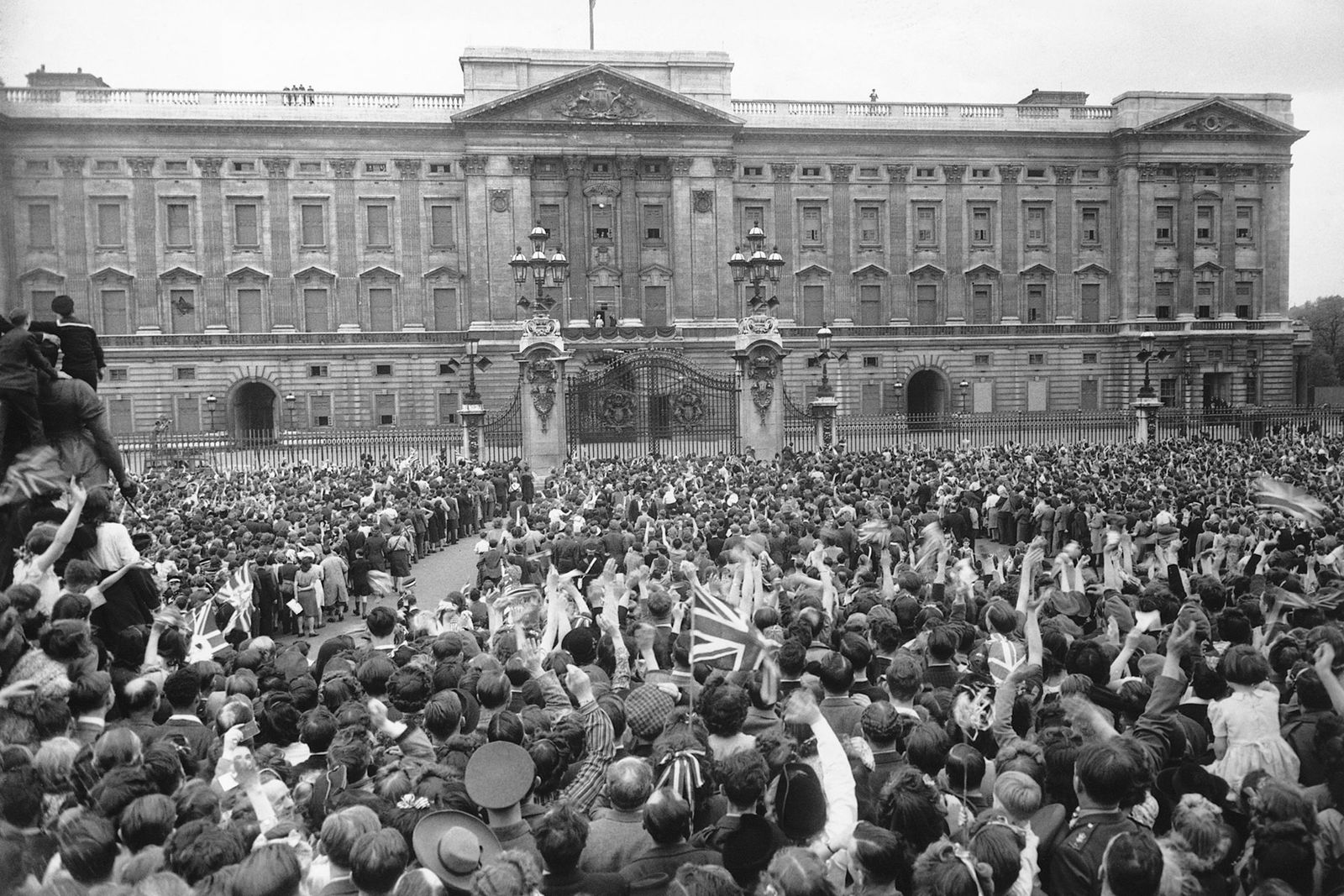
This time, the surrender was signed by German Field Marshal Wilhelm Keitel, along with other representatives of the German High Command, in the presence of Marshal Georgy Zhukov of the Red Army and representatives from the Supreme Headquarters Allied Expeditionary Force (SHAEF). The Soviet Union considered this Berlin signing as the official and legally binding surrender of the Third Reich, highlighting the emerging differences in perspective among the Allied powers regarding the post-war order. Both General Jodl and Field Marshal Keitel were later held accountable for their actions during the war, as they were found guilty of war crimes by the International Military Tribunal at Nuremberg and subsequently executed. This underscores the Allied commitment to ensuring justice for the atrocities committed by the Nazi regime.
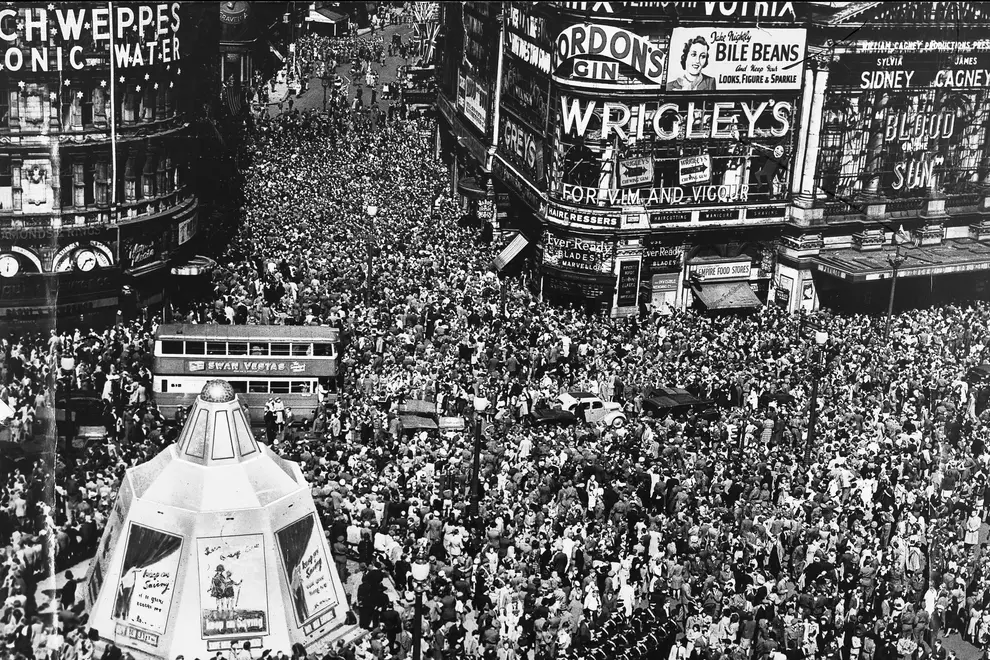
News of Germany’s surrender ignited an outpouring of joyous celebrations across the Western world, most notably in the United Kingdom, North America, and the Soviet Union. In the UK, over a million people took to the streets to mark the end of the war in Europe. Crowds surged into Trafalgar Square and up the Mall towards Buckingham Palace, where King George VI, Queen Elizabeth, and Prime Minister Winston Churchill appeared on the palace balcony to the cheers of the jubilant masses. Churchill, in a momentous radio broadcast, officially announced the cessation of hostilities. In the United States, the announcement of VE Day coincided with President Harry S. Truman's 61st birthday. Truman, who had assumed the presidency following the recent death of Franklin D. Roosevelt, dedicated the victory to his predecessor's memory.

While urging Americans to remain mindful of the ongoing conflict in the Pacific, many across the nation engaged in enthusiastic celebrations, with New York City witnessing particularly large and vibrant gatherings. Despite the widespread euphoria, leaders like President Truman called for a degree of sobriety in the rejoicing, reminding their citizens that the war against Japan was still being fought. This tempered the celebrations with the knowledge that many sacrifices were yet to come before the final global victory. The overwhelming joy experienced on VE Day represented a profound release of pent-up emotions after nearly six long years of war, marked by stringent restrictions, constant dangers, and the heartbreaking loss of countless loved ones. The celebrations were a collective expression of relief, hope, and gratitude for the end of the brutal conflict in Europe.
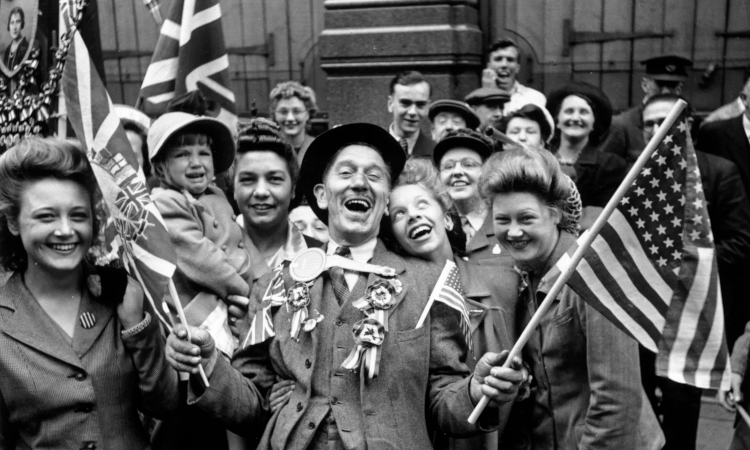
While VE Day signified a monumental victory and the end of the war in Europe, it is crucial to remember that World War II continued to rage in other parts of the world. The war against Imperial Japan in the Far East and Pacific did not conclude until their eventual surrender on VJ Day, which was formally signed on September 2nd, 1945, following the initial announcement on August 15th. For many Allied servicemen and women who had fought in Europe, VE Day was a bittersweet occasion, as it meant the end of one gruelling theatre of war but also the potential for redeployment to the equally challenging and often brutal conditions of the Pacific theatre. The prospect of further combat tempered the celebrations for those who knew their service was not yet over. The war in the Pacific presented a different set of challenges, characterised by vast distances, unique terrains, and a determined enemy, highlighting that the Allied forces still faced a significant and arduous task even after the victory in Europe.

The legacy of VE Day extends far beyond the immediate celebrations of 1945. It stands as a powerful symbol of the triumph of democracy and freedom over the tyranny of Nazi Germany. The immense human cost of the war, including the systematic genocide of six million Jews in the Holocaust and the tens of millions of other casualties, serves as a stark reminder of the devastating consequences of extremism and unchecked aggression. The shared experience of fighting against a common enemy and the desire to prevent future global conflicts played a significant role in the establishment of the United Nations, an organisation founded on the principles of international cooperation and peace. However, the end of the war also marked the beginning of new tensions, as the ideological differences between the Western Allies and the Soviet Union led to the emergence of the Cold War, reshaping the geopolitical landscape of Europe and the world for decades to come.
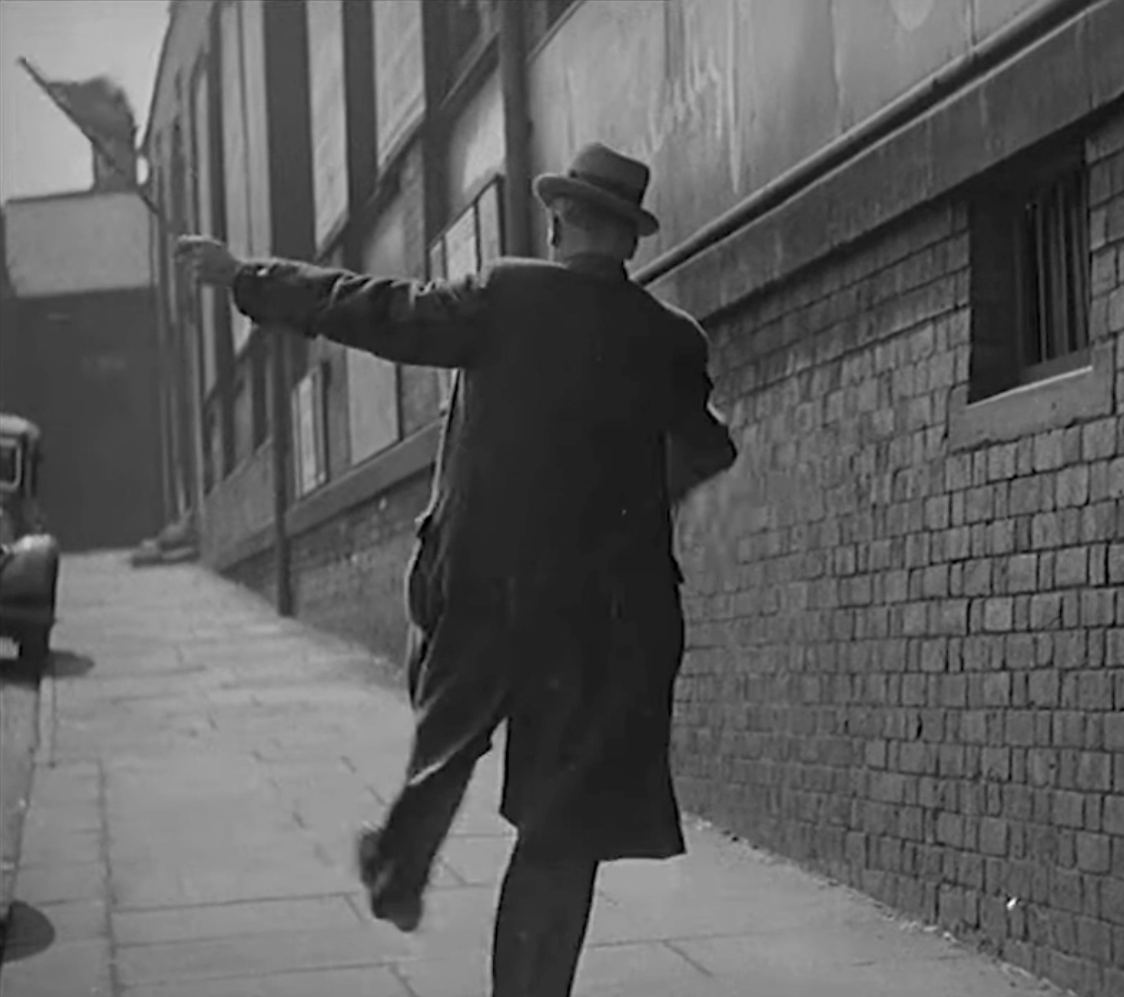
The profound impact of the Holocaust and the revelations of Nazi atrocities significantly influenced the Allied demand for the unconditional surrender of Germany. The Allies recognised that only the complete dismantling of the Nazi regime and its ideology could ensure lasting peace and prevent a resurgence of such horrors. Ultimately, VE Day remains not only a commemoration of a hard-won victory but also a solemn reminder of the sacrifices made and the enduring fragility of peace.
As the 80th anniversary of VE Day approaches in 2025, numerous commemorations are planned to honour this historic milestone, particularly in the United Kingdom. These events, scheduled to take place from May 3rd to May 11th, will provide opportunities for remembrance and celebration. National events in London will include a grand military procession, a flypast by the iconic Red Arrows, a recitation of Winston Churchill's famous VE Day speech by actor Timothy Spall, and a special tea party at Buckingham Palace for surviving World War II veterans.
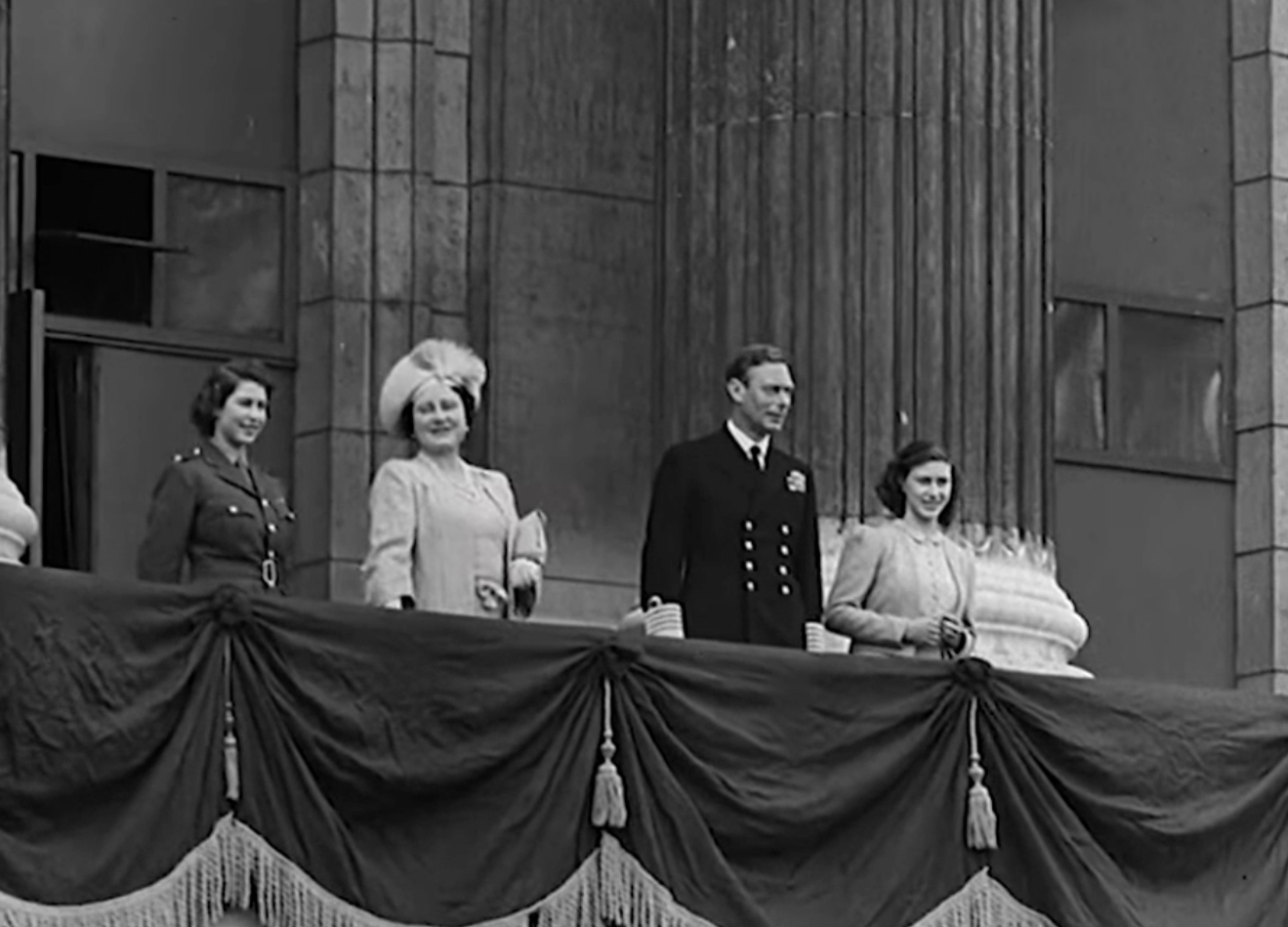
Across the UK, local communities are organising a wide array of events, such as traditional street parties, the lighting of commemorative beacons, poignant remembrance services, and insightful historical exhibitions, including numerous events planned throughout Kent. These commemorations emphasise the importance of honouring the "wartime generation," the brave men and women who served and sacrificed during the Second World War. The 80th anniversary is considered a particularly significant occasion, likely representing the last major opportunity for many of the remaining World War II veterans to participate in such tributes. In a gesture of solidarity, personnel from the armed forces of Ukraine, currently engaged in their own fight for freedom, will join British forces in the London procession, drawing a powerful parallel between the Allied struggle against Nazi Germany and Ukraine's ongoing resistance against Russian aggression.
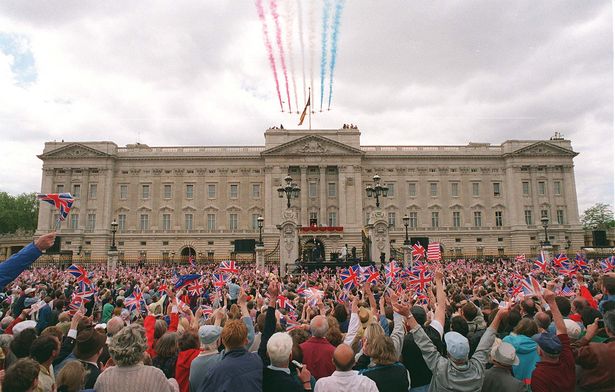
Victory in Europe Day stands as a momentous occasion, marking the end of a devastating conflict in Europe and the triumph of the Allied forces over Nazi Germany. While the celebrations in 1945 were filled with immense joy and relief, they were also tempered by the ongoing war in the Pacific and the profound understanding of the sacrifices made. The legacy of VE Day continues to resonate today, reminding us of the importance of international cooperation, the dangers of extremism, and the enduring value of peace and freedom. As we commemorate the 80th anniversary, it is vital to remember and honour the sacrifices of the wartime generation and to reflect on the lessons learned from this pivotal period in history.


